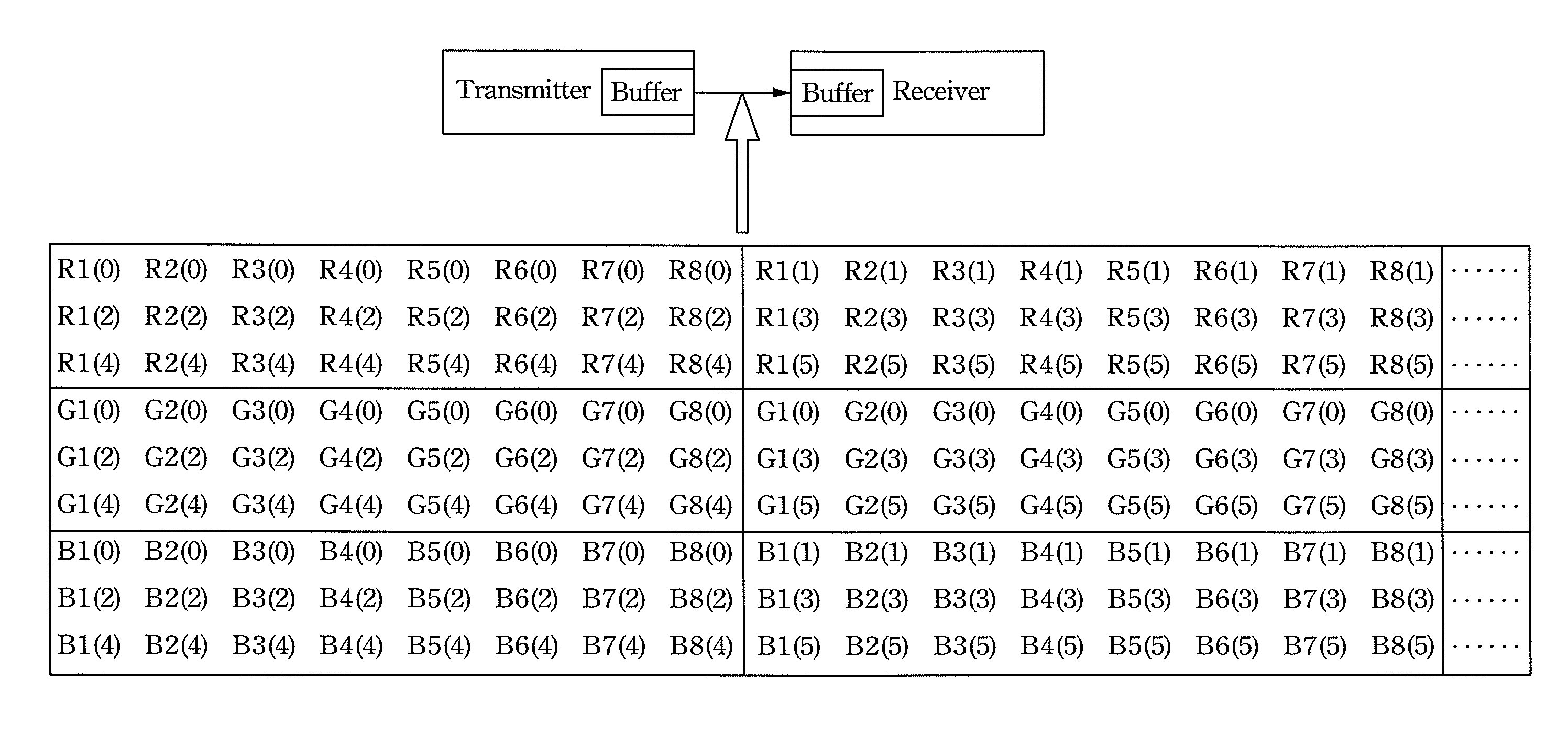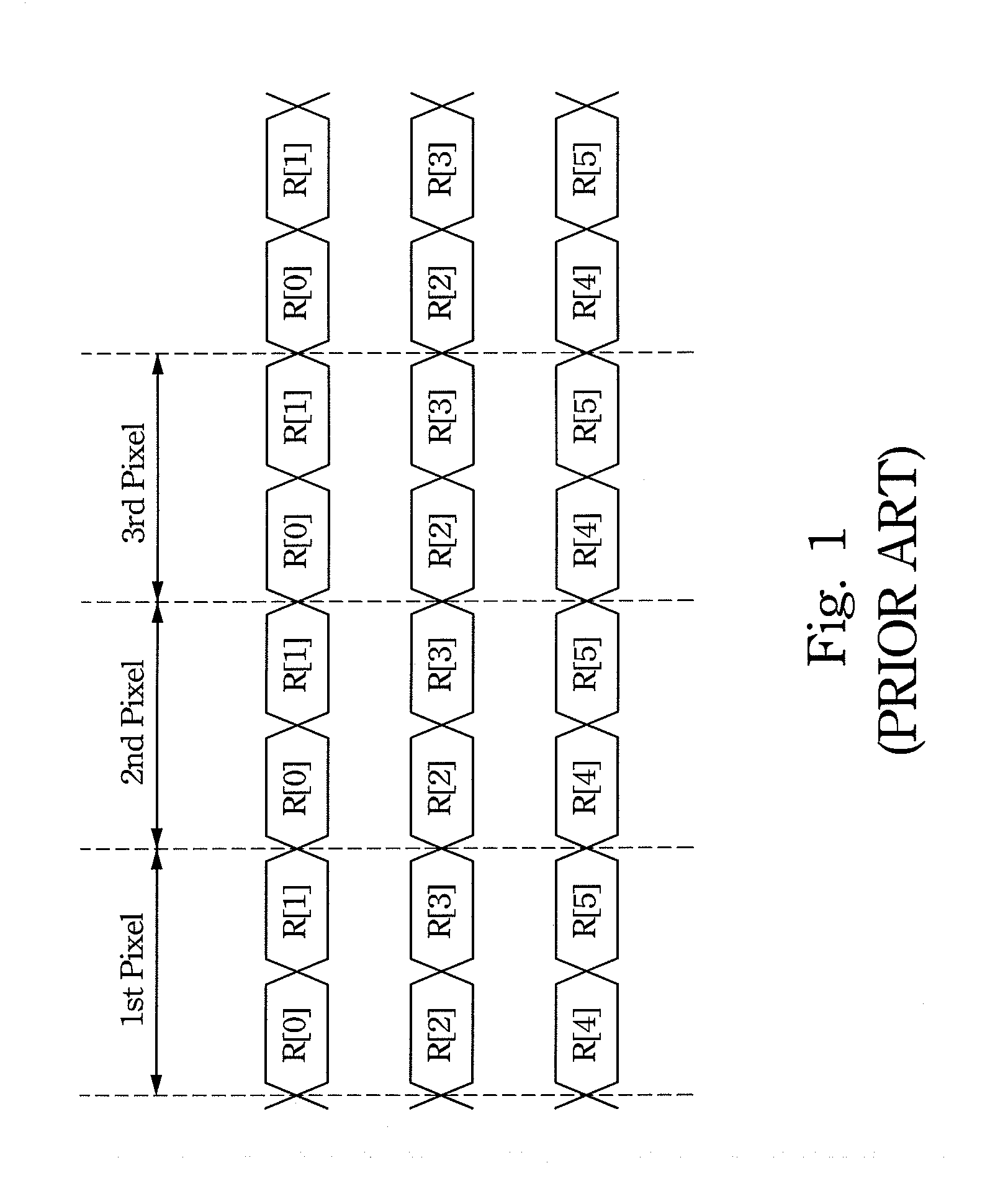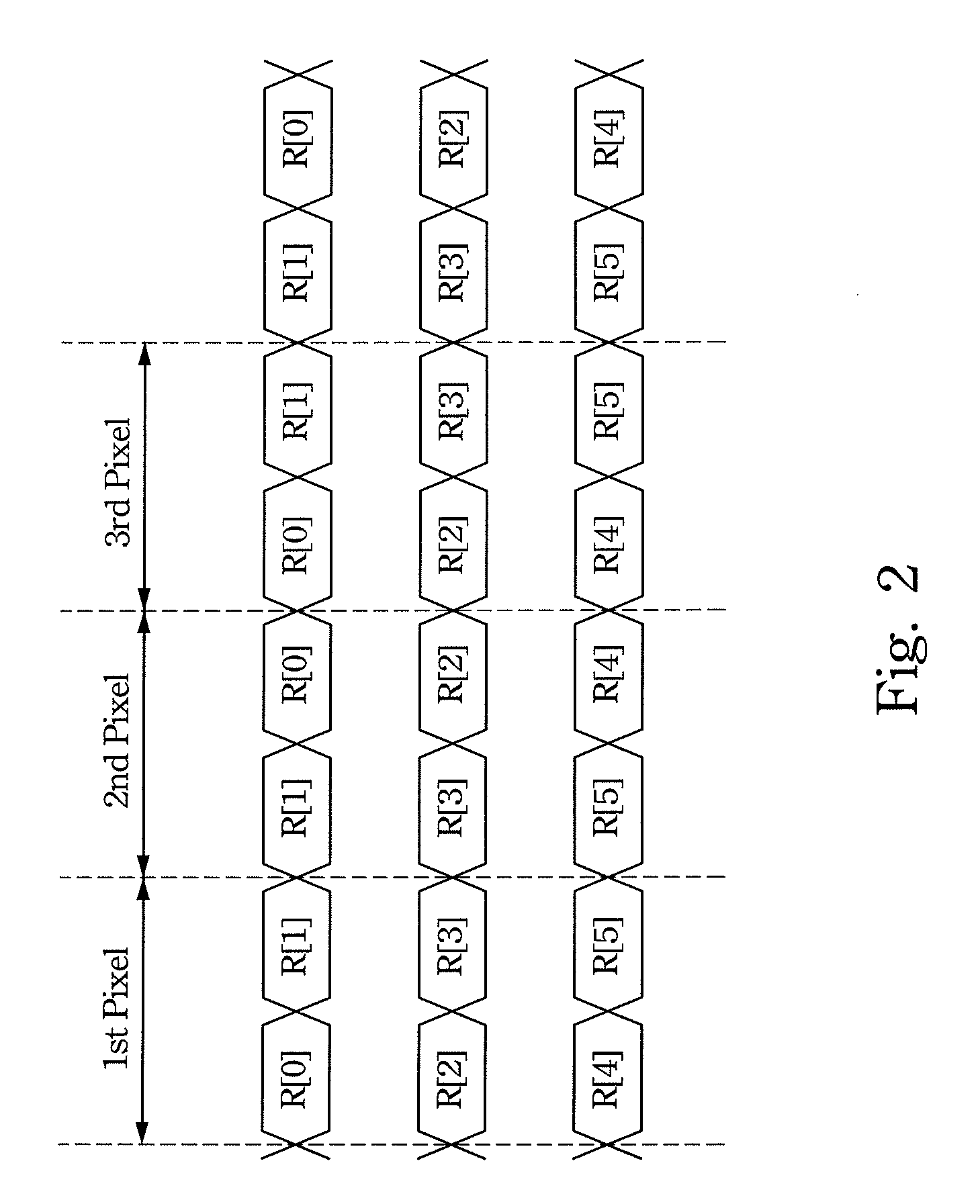Method for transmitting image data to driver of display
a liquid crystal display and image data technology, applied in the field of image data transmission, can solve the problems of higher power consumption and and achieve the effect of reducing the toggle rate of data transmission, reducing electromagnetic interference (emi) radiation and power consumption
- Summary
- Abstract
- Description
- Claims
- Application Information
AI Technical Summary
Benefits of technology
Problems solved by technology
Method used
Image
Examples
first embodiment
[0020]FIG. 2 shows the pixel value waveforms when using the method for transmitting the image data according to the present invention. As shown, when each pixel value is represented by six bits, i.e. R[0], R[1], . . . , R[5], the six bits of each pixel value are transmitted through three of the data lines. During the first period, the six bits of the first pixel value are sequentially transmitted through three of the data lines, respectively; that is, R[0] and R[1] are sequentially transmitted through one of the data lines, R[2] and R[3] are sequentially transmitted through another one of the data lines, and R[4] and R[5] are sequentially transmitted through yet another one of the data lines.
[0021]During the second period after the first period, the six bits of the second pixel value are sequentially transmitted through the data lines as well, in which the order of the last bit transmitted during the first period is the same as that of the first bit transmitted during the second per...
second embodiment
[0023]FIG. 3 shows the pixel value waveforms when using the method for transmitting the image data according to the present invention. The six bits of each pixel value are transmitted through two of the data lines. During the first period, the six bits of the first pixel value are sequentially transmitted through two of the data lines, respectively; that is, R[0], R[1] and R[2] are sequentially transmitted through one of the data lines, and R[3], R[4] and R[5] are sequentially transmitted through the other one of the data lines.
[0024]During the second period after the first period, the six bits of the second pixel value are sequentially transmitted through the data lines as well, in which the order of the last bit transmitted during the first period is the same as that of the first bit transmitted during the second period; that is, R[2], R[1] and R[0] are sequentially transmitted through one of the data lines, and R[5], R[4] and R[3] are sequentially transmitted through the other on...
third embodiment
[0026]FIG. 4 shows the pixel value waveforms when using the method for transmitting the image data according to the present invention. Compared to FIG. 3, the six bits of the first pixel value are transmitted through two of the data lines, respectively, and transmitted alternately by one bit through the data lines during the first period; that is, R[0], R[2] and R[4] are sequentially transmitted through one of the data lines, and R[1], R[3] and R[5] are sequentially transmitted through the other one of the data lines.
[0027]During the second period after the first period, the six bits of the second pixel value are sequentially transmitted through the data lines as well, in which the order of the last bit transmitted during the first period is the same as that of the first bit transmitted during the second period; that is, R[4], R[2] and R[0] are sequentially transmitted through one of the data lines, and R[5], R[3] and R[1] are sequentially transmitted through the other one of the da...
PUM
 Login to View More
Login to View More Abstract
Description
Claims
Application Information
 Login to View More
Login to View More - R&D
- Intellectual Property
- Life Sciences
- Materials
- Tech Scout
- Unparalleled Data Quality
- Higher Quality Content
- 60% Fewer Hallucinations
Browse by: Latest US Patents, China's latest patents, Technical Efficacy Thesaurus, Application Domain, Technology Topic, Popular Technical Reports.
© 2025 PatSnap. All rights reserved.Legal|Privacy policy|Modern Slavery Act Transparency Statement|Sitemap|About US| Contact US: help@patsnap.com



